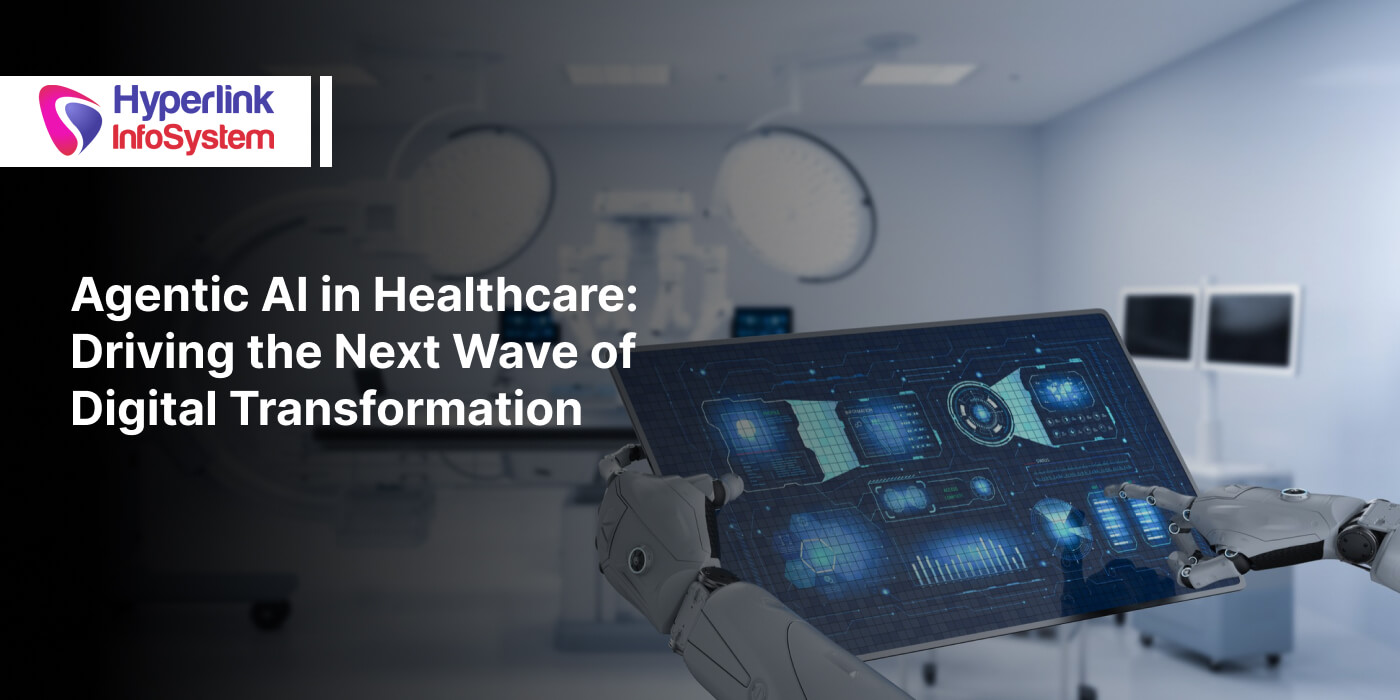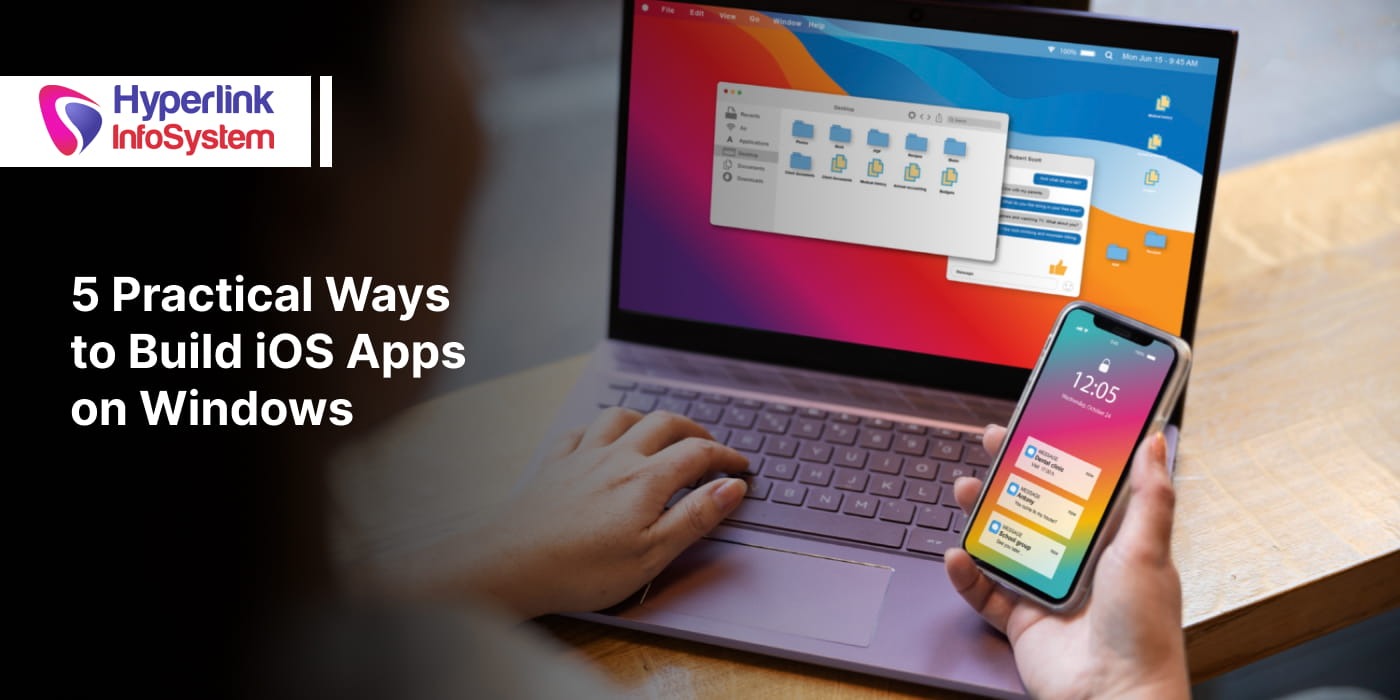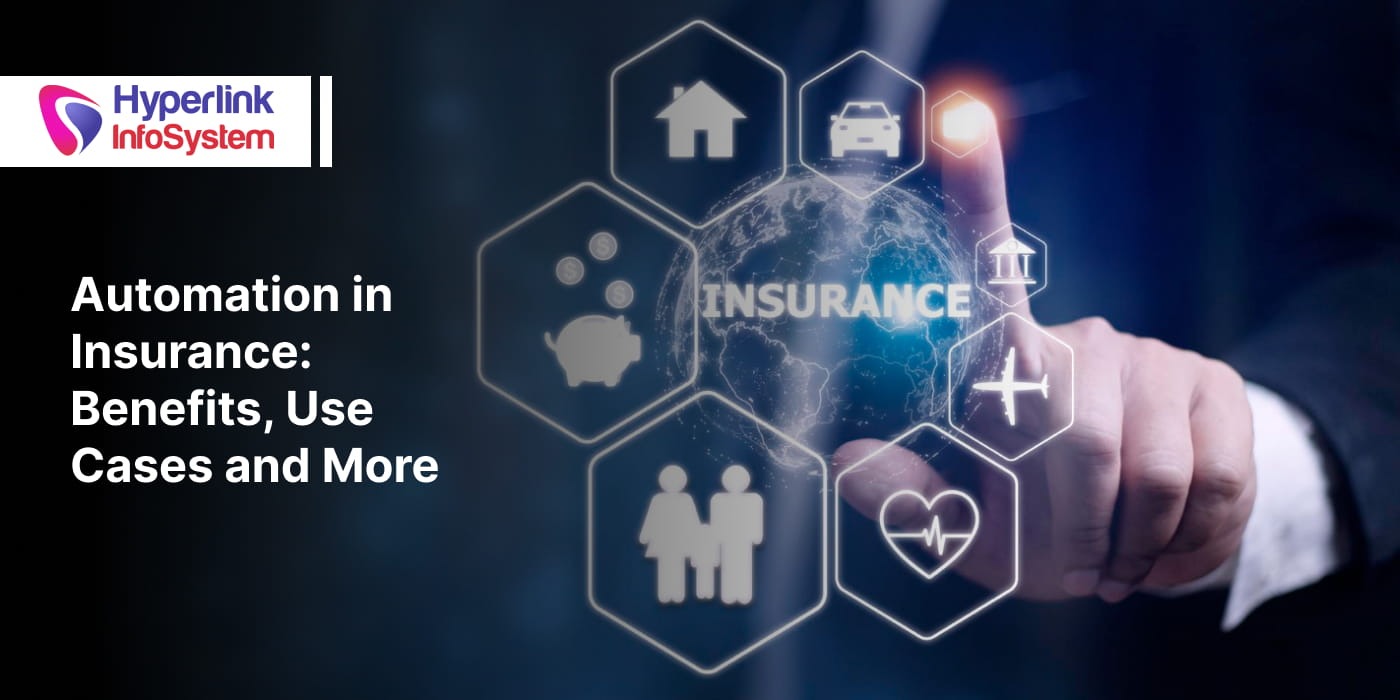Agentic AI in Healthcare: Driving the Next Wave of Digital Transformation
Jul 2025

Healthcare has always been the most critical segment when it comes to accepting technological innovations, and yes, of course, it is the only way it should be. As time passes by, we all have seen technological advancements in healthcare that are no less than any miracle! With the rise of artificial intelligence, the healthcare industry is now ready to integrate and accept AI for promising results and a better future.
In the early era of AI in healthcare, AI was used for fast data processing, accurate analysis, and automating routine tasks, but with the evolution of AI, the scenario in healthcare is changing with the adaptation of Agentic AI. What sets Agentic AI apart from the other AI services is its ability to take initiative without any human intervention, and my friend, that is the future we're talking about today in this blog.
With the rising challenges in the healthcare industry, small changes won't make any big impact, so this is the time when healthcare people adapt the technology that provides a shift in how care is delivered. To begin with, Agentic AI is the first and biggest move. It will work as a personal caretaker who is available 24/7. It can monitor patients’ symptoms and activties, create customized plans, trigger warnings, and more. In short, it helps deliver smarter care, faster. Let's dive in and get a better view of this.
Understanding Agentic AI
We may all have interacted with AI chatbots on different websites or applications, but agentic AI is very different from that. Traditional chatbots are limited based on human commands and conventional learning methods but Agentic AI acts as a human assistant who is available for you 24/7.
Agentic AI is a next-generation form of artificial intelligence that displays autonomy, proactivity, and goal-oriented behavior. It acts like a human agent that is capable of making decisions, managing tasks, and collaborating with other people all on its own. It observes, adapts, and acts without any human intervention, and that's what Agentic AI is. In the context of AI in healthcare, it is not limited to monitoring and analyzing, it can initiate care actions, coordinate with other systems, and adjust care strategies in real time.
Key Characteristics of Agentic AI:
- Autonomy: Agentic AI can operate without constant human input, unlike traditional AI chatbots.
- Adaptability: It learns and adjusts in changing environments and takes action accordingly.
- Goal-directed behavior: Agentic AI focuses on outcomes rather than just following rules.
- Continuous learning: Improves its own decision-making over time.
Difference between traditional AI and agentic AI
|
Feature |
Traditional AI |
Agentic AI |
|
Initiative |
Reactive |
Proactive |
|
Flexibility |
Rule-based |
Context-aware |
|
Interactivity |
Limited |
Dynamic, multi-turn |
|
Learning |
Static models |
Adaptive, ongoing learning |
|
Autonomy |
Minimal |
High autonomy in decision-making |
If you want a real-time example of an agentic AI, then it would be an AI assistant who can adjust insulin recommendations in real-time by tracking their activities, such as food intake, exercise, stress, etc. This is how agentic AI works.
Agentic AI is strongly backed by an intelligent tech stack like LLMs (large language models), reinforcement learning, and multimodal AI. LLMs help in learning and enabling natural conversations and understanding, while reinforcement learning teaches these agents to make goal-oriented decisions, whereas multi-modal AI processes different input formats like text, images, voice, and sensor data for a complete health profile. Agentic AIs are connected to IoT so that they can get real-time data, with the help of edge computing and cloud platforms, they ensure speed and scalability. This combination is the secret of a smarter agentic AI, making it a true game-changer in the healthcare segment.
Key Applications of Agentic AI in Healthcare
Here are some of the main applications of agentic AI in healthcare, where agentic AI acts with autonomy, learning, and adapting across complex environments for better and smarter healthcare.
- Smarter Clinical Decisions
Think of a situation where an AI system isn’t just displaying patient vitals, but actually analyzing them, comparing them with millions of similar cases, and offering smart recommendations to help doctors decide what to do next. That’s exactly what agentic AI can do. It spots early warning signs, offers real-time insights, and can even prioritize critical cases in a crowded emergency room. In fast-moving situations, that kind of backup makes a huge difference.
- Care That Fits the Patient—Not the Other Way Around
We all know that what is good for one patient may be bad for another. Agentic AI takes that seriously. It makes adjustments to care plans dynamically, depending on patient data streaming in from wearables, health apps, and medical records.
It might just call for a simple adjustment of a medication dose, keeping watch on remote vitals, or simply nudging someone to stay on track with their routine. Instead of following a rigid course, it responds to each person's changes in needs, thus improving in its being personal, accurate, and effective.
- Virtual Health Agents
Agents would have to serve 24/7 in healthcare, given the nature of emergencies that can strike anytime. The agents work as digital nurses or companions in giving mental support at all hours, from symptom checking to emotional support. Some agents may even show empathy, implementing voice tone analysis and sentiment detection. These AI companions guide people through chronic illness or give late-night reassurance, human-like care from anywhere at any time.
- Operational Efficiency
A good hospital means handling the data of so many people, including patients, doctors, nurses, cleaning staff, and other related people too. This results in tons of paperwork, scheduling, and logistics management. In this situation, agentic AI eases up everything by providing workflow automation and streamlining administrative tasks such as documentation, billing, and appointment scheduling. If you opt for more advanced systems, then they can optimize resource allocation by making sure that ICU beds, medical staff, and equipment are used efficiently. This helps in smoother operations, lower cost, and improved care services.
- Chronic Disease and Elderly Care
Patients with long-term health conditions are taking care of their health by measuring parameters at home. For such people, agentic AI can act as their personal genie that supports them, take care of them, and remind them to take medicines. Agentic AI can also help in detecting early signs of any symptoms and can alert the caretaker. It can help with fall detection, sleeping pattern, and many other activities.
- AI in Clinical Trials and Research
Clinical research often hits bottlenecks in data collection and patient recruitment. Enter agentic AI. These systems can screen and enroll trial participants autonomously, manage adaptive trials, and clean massive datasets in real time. This not only accelerates drug discovery and medical research but also reduces errors and improves compliance. A forward-thinking AI service provider can integrate such systems to modernize clinical trials from the ground up.
Read more: AI in Pharmaceutical: Use Cases, Benefits, and More
Real-World Examples and Case Studies
Agentic AI is not an idea of the future; many hospitals and healthcare organizations have already started to adopt it.
- The Mayo Clinic & Cleveland Clinic
Mayo Clinic and the Cleveland Clinic are probably among the first in fostering agentic AI to edit care delivery. From diagnosis on the spot, autonomous AI systems in these hospitals are alerting to critical anomalies in patient data and giving recommendations for treatment backed by evidence. Agentic AI learn and adapt, so the physician gets insight instead of just another set of data.
Take, for instance, their use of multi-modal agentic AI to cross-reference imaging scans, genetic profiles, and lab results, providing faster and more accurate diagnoses. In critical care, agentic AI even supports automated triage and alerts clinicians to subtle shifts in a patient's vitals before human eyes might catch them.
- Stanford Medicine: Shaping the AI-Driven Hospital
Stanford Medicine is redefining what it means to be a smart hospital.
They also brought in these autonomous AI agents for supporting activities ranging from robotic-assisted surgeries to intelligent scheduling systems. They discharged patients with some AI-powered virtual assistants that monitor recovery data, book follow-ups, or even do it all completely without human intervention.
This approach helped them improve outcomes while reducing the burden on staff. This shows us how a top AI development company can build an amazing agentic AI by collaborating with the best healthcare people.
There has been a significant all-in impact of agentic AI in chronic disease management. Patients suffering from diabetes or heart disease, etc., wear connected AI agents that monitor symptoms and predict complications while nudging patients toward personalized interventions. One instance relates to the AI agent recognizing a subtle change in the glucose levels of a patient over the span of weeks, which again set along an intervention-type dietary change to keep them from being admitted to the hospital.
In virtual health, AI-assisted mental health triage is giving therapeutic conversations while adjusting responses depending on the tone and emotional state of the receiver. These systems provide care on-demand at scale absolute boon for rural and underserved populations.
Real-World Benefits of Agentic AI in Healthcare
Healthcare is facing some serious pressure—too many patients, not enough hands, and rising expectations. That’s where agentic AI comes in. Unlike older AI systems that wait for commands, agentic AI is more like an assistant that can think ahead, take initiative, and actually help solve real problems.
1. It Helps Doctors Spot Issues Earlier
You can say that agentic AI is very proactive; it monitors patients’ symptoms and, based on that analysis, it can predict an emergency if there’s one. In such cases, agentic AI can directly notify about this direct to the doctor and relevant staff to catch the issue before it becomes a major problem.
The result? Faster action, fewer errors, and better care.
2. It Cuts Down Admin Work for Healthcare Staff
Doctors and nurses often spend hours doing paperwork—filling forms, summarizing notes, scheduling. Agentic AI can handle a lot of that. It can pull together patient histories, help draft discharge notes, or even sort out appointment schedules.
That gives healthcare workers more time for what really matters—treating patients.
3. It Keeps Patients on Track
Agentic AI also helps in tracking regular activities and can monitor how patients health is changing and how effective the medication is. Based on that, it also helps in prescribing the next set of medicines. It reminds people to maintain diet and take medications on time for a faster recovery.
4. It Reaches Places Where Doctors Can’t
Some areas just don’t have enough healthcare workers. AI can reach such areas and help patients in guiding them through their recovery without constantly needing a doctor visit.
5. It Scales Without the High Costs
Healthcare systems are stretched thin, and hiring more staff isn’t always possible. Agentic AI helps scale services without blowing up the budget. It can support things like chronic illness tracking, billing, or trial management.
Hospitals and startups are already using it in smart ways, customizing AI agents for specific tasks or patient groups.
Ethical, Regulatory, and Technical Challenges
As exciting as agentic AI in healthcare is, there are still real challenges that need attention. First up is data privacy—these systems work with sensitive health info, so staying compliant with HIPAA, GDPR, and strong security practices is non-negotiable. Whether you’re working with an AI development company or hiring dedicated developers in India, protecting patient data should always be a top priority.
Then there’s the issue of bias and fairness. If agentic systems are trained on narrow or incomplete data, they can make uneven or even harmful decisions. Good AI must treat all patients equally, no matter their background.
We also need to think about accountability and explainability. If an AI tool makes a mistake, who’s responsible? And can doctors and patients actually understand how it came to a decision? Making AI more transparent is key to building trust.
Finally, integration matters. Agentic AI needs to work smoothly with hospital systems like EHRs without slowing things down. That’s why many teams hire AI developers or dedicated resources to make sure these systems fit naturally into existing workflows.
The Future of Agentic AI in Healthcare
Thus, an agency AI cannot replace the true physician but can only offer assistance to the same. From a pseudo-true point of view, such AI works as a co-pilot helping with choices, notifications, and insights so that the medical professionals can do their cardinal task: being human. The smartest and most compassionate care can be given with a little human empathy and a lot of precision from AI.
The AI in healthcare is therefore moving towards either preventive or individualized care and away from reactive care. Agentic systems, with their incisive data insights, can help in population health management and identify risks even before the symptoms show up. More citizen-centric care thus ensues, wherein the patients are not merely recipients but co-participants.
Agentic AI thus has a good prospect of becoming a truly digital health partner by 2030 that can assist in treating chronic illnesses, crises, and healthy living. From home devices to hospital systems, care will be continuous and hyper-personalized. AI service providers and artificial intelligence development companies will play a crucial role in building this ecosystem. To stay ahead, healthcare leaders must hire dedicated AI developers and dedicated resources who understand both tech and compassion.
Conclusion
Agentic AI has been disrupting healthcare, turning it literally from one of reactive fixes to proactive, personalized, and truly collaborative care. From what we have witnessed, autonomous systems can spot subtle warning signs, customize treatment plans accordingly, and allow clinicians to pay attention to the human side of patient care.
This is a moment of great opportunity. While taking these intelligent agents toward adoption, they must be rooted in principles of fairness, transparency, and security so that every patient gets their share of benefits, and every provider really trusts the technology.
At Hyperlink Infosystem, we partner with healthcare leaders to design, develop, and deploy next-generation agentic AI solutions. Whether you need to hire dedicated developers in India or consult with an experienced AI service provider, our team brings deep domain expertise and a human-first approach to every project.
The future of medicine is a shared journey. Let’s embrace innovation responsibly, invest in agentic AI, protect patient trust, and build a healthier tomorrow together. Contact us now!
Frequently Asked Questions
Traditional AI follows fixed rules or responds to specific inputs, while agentic AI acts more like a proactive assistant—it can make decisions, adapt to new data, and even pursue goals like improving a patient’s health over time. It's like the difference between a calculator and a smart advisor.
Not at all. The goal isn’t to replace doctors but to support them. Agentic AI helps with tasks like analyzing patient data, predicting risks, and managing care plans, so doctors can focus more on the human side of healing.
It starts with the right tech partner. Teams often hire AI developers or work with an AI development company like Hyperlink Infosystem to build custom solutions. From virtual health agents to smart monitoring systems, there's a lot that can be tailored to your needs.
When developed responsibly—with secure data practices and diverse, fair training data—yes, agentic AI can be very safe. It’s important to work with an AI service provider who understands both the technology and the ethical considerations.
Latest Blogs

Is BlockChain Technology Worth The H ...
Unfolds The Revolutionary & Versatility Of Blockchain Technology ...


IoT Technology - A Future In Making ...
Everything You Need To Know About IoT Technology ...

Feel Free to Contact Us!
We would be happy to hear from you, please fill in the form below or mail us your requirements on info@hyperlinkinfosystem.com
Hyperlink InfoSystem Bring Transformation For Global Businesses
Starting from listening to your business problems to delivering accurate solutions; we make sure to follow industry-specific standards and combine them with our technical knowledge, development expertise, and extensive research.
4500+
Apps Developed
1200+
Developers
2200+
Websites Designed
140+
Games Developed
120+
AI & IoT Solutions
2700+
Happy Clients
120+
Salesforce Solutions

40+
Data Science

















